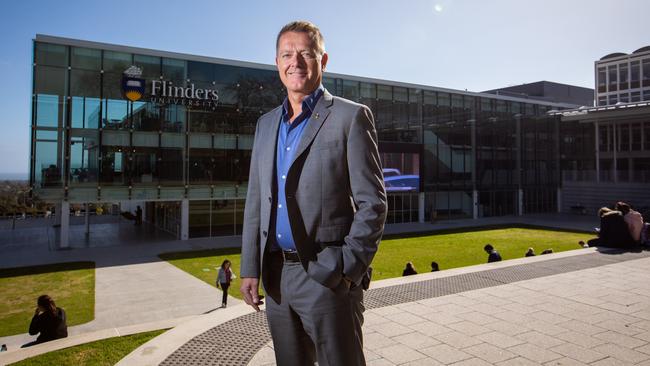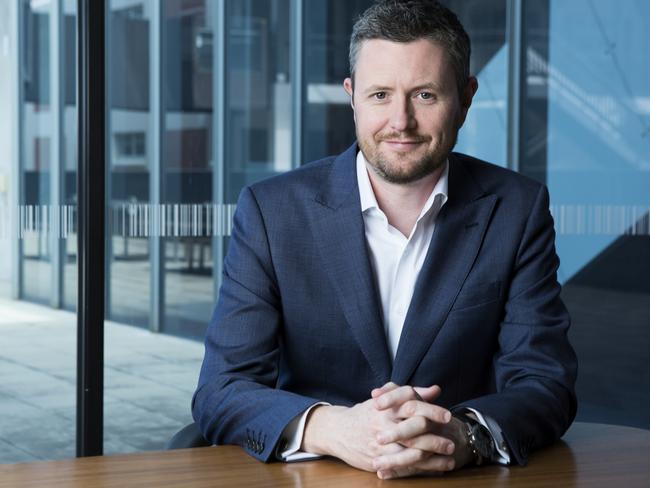Flinders, Adelaide and UniSA fear fee changes in job-ready reforms will set SA back
Fee changes are supposed to get more students into uni and into courses that’ll get them jobs. But all three unis in SA fear the reforms are going to cut funding and puncture SA’s economy.
Tertiary
Don't miss out on the headlines from Tertiary. Followed categories will be added to My News.
Reforms to university funding would be “catastrophic” for South Australia under laws now being debated in Parliament, Flinders University says.
Joined by the heads of Adelaide University and UniSA, Flinders vice-chancellor Colin Stirling warned SA’s economy would be permanently stuck in the slow lane of growth under the changes proposed by the Federal Government.
Tens of millions of dollars would be stripped from the unis – with the impact on Flinders as bad as the COVID-19 effect.
Addressing a Senate committee, Prof Stirling said the legislation “does not deliver for South Australians”.
“It would send us backwards, it would also limit SA’s capacity to develop the workforce required to do the work on the multi-billion-dollar Defence projects,” he said.
The reforms have been proposed by federal Education Minister Dan Tehan as a way to create 39,000 extra uni places by 2023 and use changes in funding and costs to channel students into supposedly more job-ready courses such as teaching and fewer into humanities.
Prof Stirling, UniSA’s David Lloyd and Adelaide’s Mike Brooks all expressed concern that a formula would give regionally headquartered unis 3.5 per cent annual funding increase per student, unis in cities with rapid increases in residents aged 20-29 a 2.5 per cent increase and city unis with low growth in that demographic only a 1 per cent increase.

Prof Stirling said among the states SA already had the lowest uni graduation rates from regional and remote areas.
But because all three unis were in Adelaide, SA would be left behind even though the reforms aimed to boost regional education.
“It’s critical this be addressed because being pegged at the lowest growth rate means regional South Australians can never catch up,” he said.
“This is catastrophic for the state.”
All three vice-chancellors said the promise of more uni places was excellent but without significant amendments the Bill risked being counter-productive.
Prof Lloyd said previous changes had left UniSA “already underfunded for delivery of education”.
“This Bill purports to create additional places for higher education,” he said.
“I would wholeheartedly welcome that if it came with additional funding to support those places – but it does not.
“The Bill enshrines changes, controls and reductions not expansion, growth or protection.”

The funding formula was intended to reflect the cost of teaching but ignored the capital costs of providing buildings, laboratories and equipment.
There was no provision nor guarantee for research, Adelaide University said.
“The national interest and COVID recovery require a vibrant Australian university research system in which the genuine underlying costs of hosting research are met,” Prof Brooks said.

The Bill would result in an average 5.8 per cent cut in funding per student but be unevenly distributed, Prof Stirling said.
“It would lead to inequitable burdens on some students with up to fourfold differentials in fees,” he said.
The Senate committee heard the Bill could lead to perverse outcomes – including pushing more students into courses which cost unis less to deliver, such as humanities, and fewer into courses, such as engineering, which cost a lot to provide.
Because students only paid for their uni once they earn a salary, the costs were not a strong driving factor.
“Students are not price sensitive, institutions can be,” Prof Lloyd said.
All three vice-chancellors rejected the claim unis were producing graduates in disciplines targeted by the federal government as having poor job prospects.
Their own surveys showed little difference between graduates in different disciplines.
The Senate committee heard two full days of evidence.
Mr Tehan stood by his position that the Bill would “provide more university places for Australian students, make it cheaper to study in areas of expected job growth and provide more funding and support to regional students and universities”.
